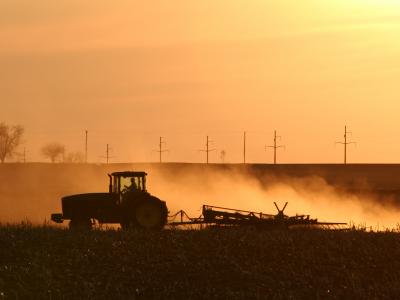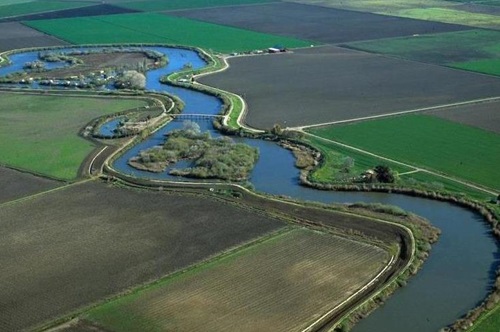A proclamation applauding the efforts of San Joaquin Valley farmers in cooperation with the San Joaquin Valley Air Pollution Control District (District), the National Resources Conservation Service (NRCS), the United States Environmental Protection Agency (USEPA), and the California Air Resources Board (CARB) to reduce agricultural air emissions throughout the Valley was issued today by representatives of all four agencies.
Through several different incentive programs, the Valley ag industry turned over and destroyed more than 12,800 pieces of older, high polluting agricultural equipment, including old tractors and other equipment, resulting in the reduction of over 11 tons per day of nitrogen oxide (NOx) emissions. NOx emissions are a key component of photochemical smog formation.
The reductions achieved are the equivalent of removing 1.5 million cars off of California roads.
According to Martha Guzman, USEPA's Regional Administrator for Region 9, “Emissions from agricultural equipment are the largest source of nitrogen oxide in the Valley and will require continued innovation and strategies for reducing air pollution – including via the $10 million grant for a low-dust nut harvester that we are announcing today.”
“The District applauds the leadership of local and state legislators, as well as Valley farmers in recognizing the public health and climate benefits provided throughout California from clean air investments,” stated Samir Sheikh, Executive Director/Air Pollution Control Officer for the Valley Air District. “The San Joaquin Valley agricultural sector feeds the world and coordinated multi-agency efforts like this must continue to support farmers’ ongoing transition to sustainable and air-friendly practices.”
For more information: Valley Agricultural Leads Nation in efforts to Improve Air Quality


